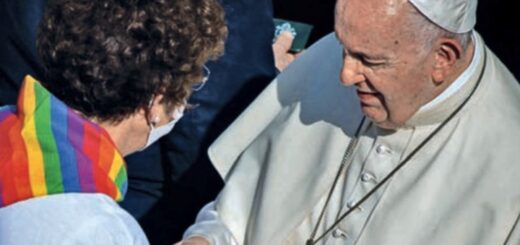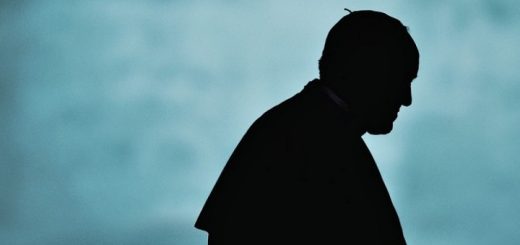The conflict of two “blood brothers”. Radu, Dracula's “queer” brother
Text by Dion Overtoun published on his blog Frightful/Filthy (United States) on June 26, 2020, very freely translated from Innocenzo Pontillo
Imagine you are in the 15th century and you are Dracula's brother. Imagine being the same guy, but that sultan Muhammad II be your lover.
"Cel Frumos“, which in Romanian means “the beautiful”, was the name with which the younger brother of was nicknamed Vlad III Dracul, known as Dracula (the impaler).
Radu “cel Frumos"was Voivoda (prince) of Wallachia (in Romania) for quite a while (from 1462 to 1463, from 1473 to 1474 and from 1474 to 1475), even if in those turbulent times it was a title that often changed ownership, in the bloodied hands of the nobles of the time.
The fact that we have yet to see a Dracula film in which his younger brother Radu is a major character, or at least mentioned, is a real shame. He could certainly be the source of many dramatic stories: indeed when his brother Vlad III Dracul showed that he would not cease to be a problem for the Ottoman Empire (a polite way of describing Vlad's scorched earth policy towards the Ottomans, who impaled them to terrorize them), the Sultan decided to send his brother Radu against him, to fight him.
Imagine being this boy: your older brother is Dracula and there is now an insurmountable abyss that separates you from him, his eyes see you with disgust and revulsion. When he captures you, he will kill you along with your soldiers and you wouldn't let him and his men die any differently.
But for him you are worse than an invader or a pretender to the throne, you are a traitor. You were his little brother and you betrayed everything you stood for. You betrayed your country (by becoming the lover of those who want to subjugate it), your people (by becoming an ally of the Ottomans), your own religion (by becoming Muslim), you betrayed everything. When your older brother Dracula captures you, you will wish you were dead for a long time.
Imagine you are this guy: You are known as a kind person. You are known for being handsome (like “cel Frumos”, the beautiful), with a good personality and a winning way of doing things. Your brother Vlad III Dracul, however, is known for slaughtering anyone who got in his way. Your brother (in Wallachia) is the brutal warlord, in a time of great brutality. Your brother is a Dracul, "the devil".
Imagine you are a boy and you fight Dracula. In fact, you will be one of those who contributes to his downfall. You will not execute him or defeat him on the battlefield, but because of your efforts, partly through your constant attacks and partly through diplomacy, he will be forced to flee. When he escapes, he will be betrayed and arrested.
Imagine being that guy, who will be relegated to a footnote in the history books. While Vlad III Dracul will become a romantic hero in Gothic literature, while you will be described as a caricature, especially when people remember you, Radu "the Handsome", as Dracula's gay and traitorous brother.
Yet even Radu”cel Frumos” (the handsome one) had a rather tumultuous life, which was the price that every Romanian nobleman had to pay for the possibility of not growing turnips for his whole life.
When he was just a child, his father, Vlad II Dracul (known as “Vlad the Devil”) went to swear allegiance to the Ottoman Empire.
But when his attempts to remain equidistant between the two powers of the time failed, the Ottomans were the first to turn against him. Vlad II had to pay heavy tributes to them and promise not to help the enemies of the Ottomans. I guess they made him say "…and this time I mean it!', since he had already taken the same oath when he came to power.
The greatest blow he received was when he was forced to leave his two young sons, Vlad and Radu, hostage in the Ottoman fortress of Edirne. Summoned by the Ottoman Sultan, he had brought them with him, and had the audacity to appear shocked that the Ottomans wanted to keep them as hostages, not trusting him.
Perhaps the fact that, once he returned to his homeland, he immediately went to support a new crusade against the Ottomans, while his sons were still prisoners of the Sultan, arose from the belief that they would be killed immediately.
Vlad perhaps considered his brother Radu very similar to the child of Narnia, who allied himself with the witch in exchange for sweets from the Turks, after a controversial event involving the young Sultan, who was very attracted to the young Radu.
Sultan Muhammad II had tried to woo him a little and eventually took him to his private chambers. There he had tried to abuse Radu, who had responded to this assault by resignedly opening his legs from which he took out a knife, with which he stabbed the most powerful man in the world in the thigh. He then climbed a tree from which, according to some witnesses, he did not descend until the sultan arrived limping and promised him that he would not punish him.
Whatever excuse Muhammad II offered young Radu to justify the attempted rape, it must have been a damn good excuse, because it wasn't long before the sultan and Radu became close friends. Perhaps Radu decided to be more politically savvy, or perhaps after the serious stabbing he had been punished and beaten enough. Perhaps there had been a combination of both. In any case, Radu became a favorite of Sultan Mohammed II and an important figure in his court, the two began to spend a lot of time, both day and night, keeping each other company.
Radu was supported by the Sultan in his campaign to wrest the throne of Wallachia from his brother. He rode alongside Muhammad II, who had decided to personally lead the assault against Vlad III Dracul who, having returned to Transylvania, had begun to attack the Ottomans.
Vlad III responded to this new Ottoman attack in a terrifying manner. Radu was among those who witnessed the horrific sight of 20,000 Ottomans impaled outside Târgoviște. Like most numbers associated with Dracula's exploits, they are almost certainly exaggerated. But does it really matter? One person impaled is one too many, and Vlad III Dracul was ambitious. Although this is an (in)exact figure, it was still an enormous quantity of human beings, dead or dying, that they saw writhing in their suffering or being pecked by crows. They contemplated a true hell and took a deep dive into the profound inhumanity of humans. The Ottomans turned back to rejoin the main army, completely horrified by the sight.
They could have won. Muhammad II's personal guard of Janissaries was much larger than the entire army of Vlad III. Both Sultan Muhammad II and Radu had studied military tactics and were excellent knights. But at that sight, they turned and left. This is the power of psychological warfare.
Vlad III continued to be impossible to control for the Ottomans in the following years, who continued to do everything they could to eradicate his power, until his death. […]
Whatever there is to say about this story, it ends for both of them the same way: Vlad III died fighting, while his brother Radu was probably killed by his son-in-law.
His daughter, Maria, became the fourth wife of the great Moldavian prince Stephen II, against whom Radu had fought in the past. History doesn't tell us how his lovely daughter really felt about her husband killing her father, but considering how powerful and well-liked Stephen II was, I think I'm not wrong in saying that "she certainly had overcome this problem".
It's a pretty disappointing ending, isn't it?
Your brother is Dracula, your lover is the most powerful man in the world... and in the end you fall for a simple betrayal. There is a great tragedy hidden in the story of Vlad and Radu. […]. Why can't we make a Dracula movie about Radu?
It would be a niche film, but it would be very interesting to see how a rather queer man tried to kill his older brother, who was much more popular than him, because he had turned into a demon.
Radu knew that his older brother Vlad III was better than him and always had been. Vlad was stronger than him, more virile, more vicious, more brutal. These were the means by which he gained power and governed their homeland, and will remain so for centuries. It was a good thing that Vlad returned to become the new Voivoda (prince) of Wallachia, while Radu remained at his lover's side.
It is often discussed today what their views were on how to govern Wallachia and Transylvania, the land where they were born. But, historically speaking, their goals were the same: they both loved their homeland and wanted the best for it. However, Vlad thought that independence from the Ottoman Empire was the best thing, while Radu believed that the Ottoman Empire would help them and keep them safe from the constant danger of being invaded and from the instability that tormented, in that time immemorial, all the region.
However, the Ottoman Empire is the true protagonist of this story, which tells the story of the conflict between a younger brother and his older brother. […] But even more it reminds us that Vlad III Dracul “the impaler”, for all the stories, for all the nightmares he inspired and continues to inspire in the media, he was simply a human being. He had a family. He had brothers. He was a real person. And that's the scariest thing of all, don't you think?
As ghostly as the figure of Dracula may be, he has nothing of Vlad III, because Vlad was real, while Dracula is nothing more than a sexual metaphor, daughter of the Victorian era.
Radu “cel Frumos” (The handsome one) was related to Dracula and said to him: “I will end your life”, which is never a nice thing to say. Other than Van Hellsing, Radu “the queer” was the one who actually fought Dracula, his brother.
Original text:The queer brother nobody cares Dracula had






